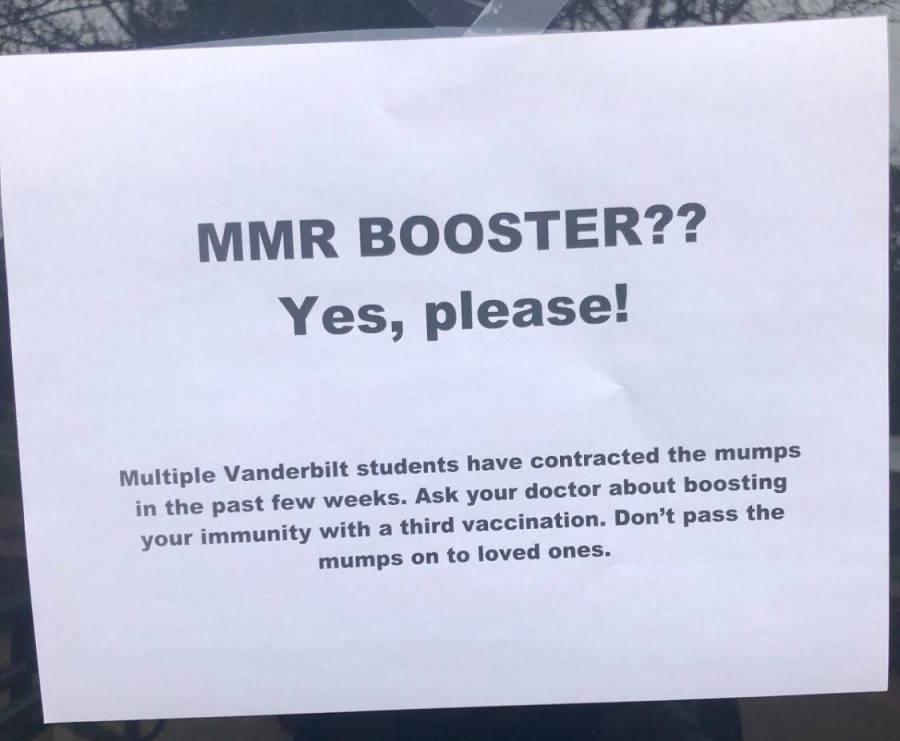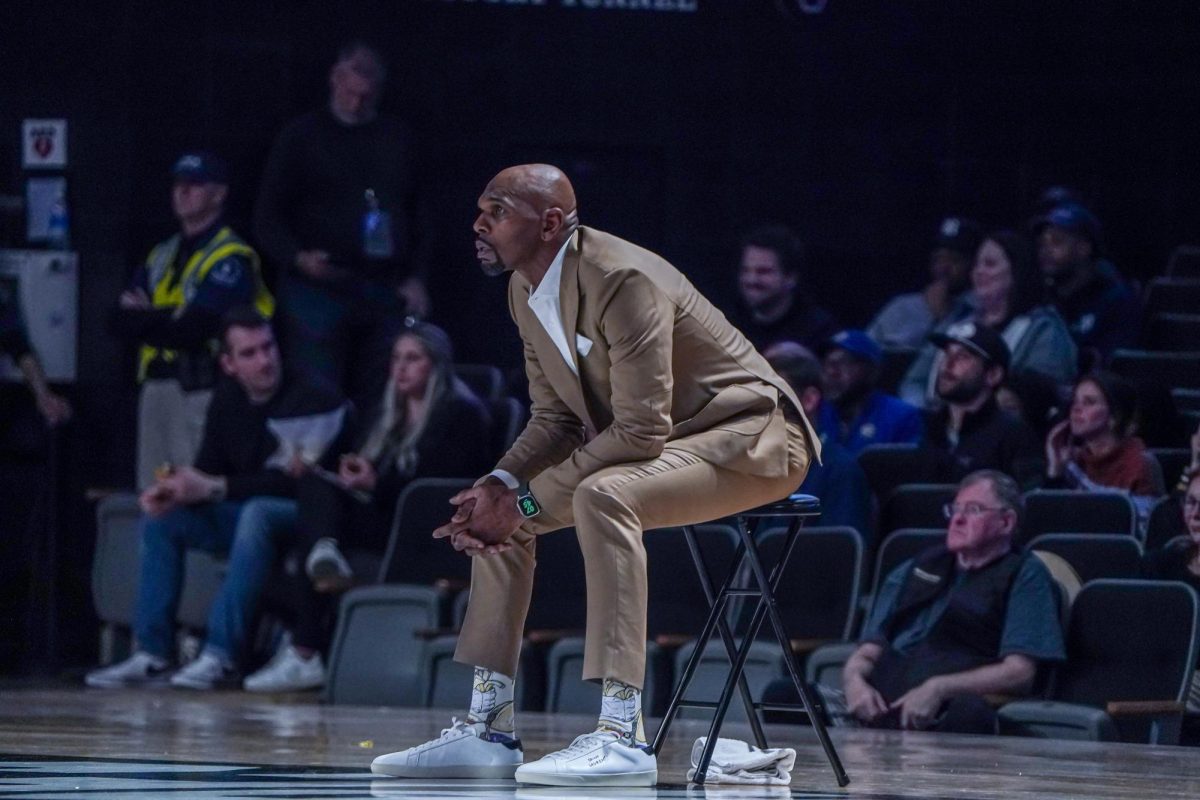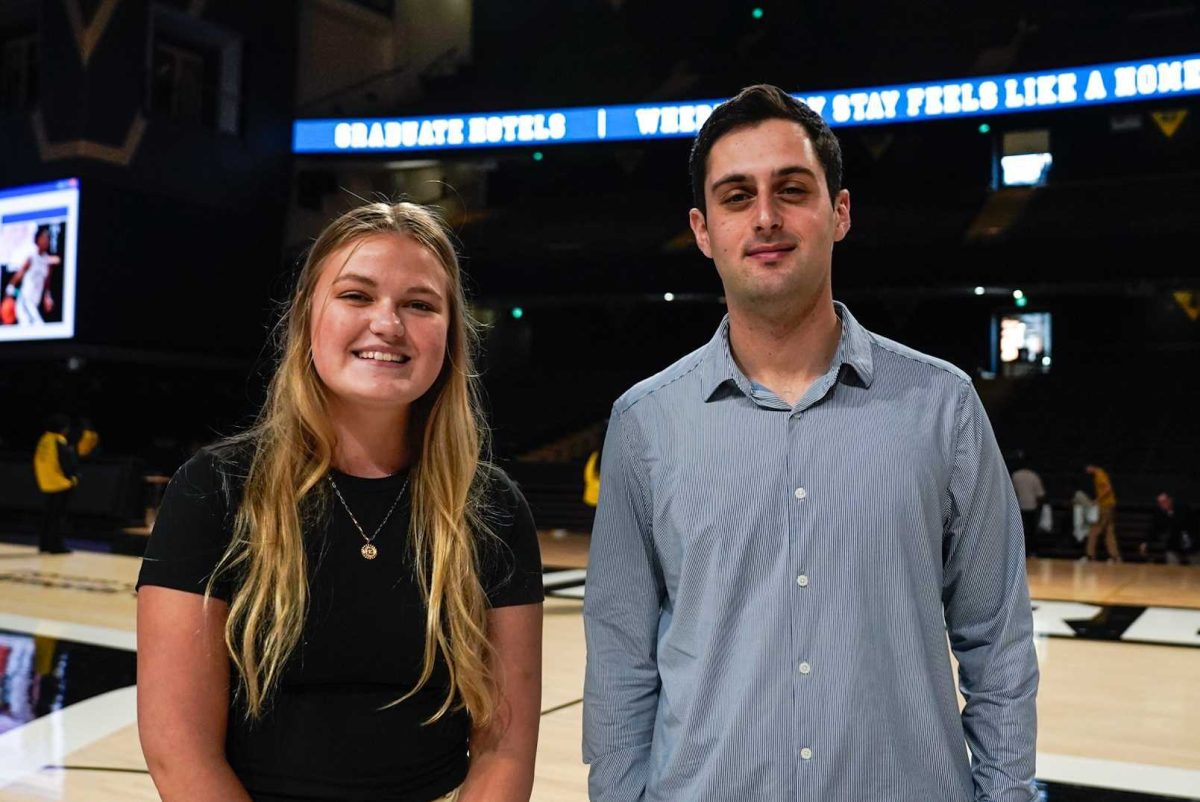A number of posters concerning student cases of mumps and a mumps booster vaccine have appeared around Rand; Director of Student Health Louise Hanson said that her office is not responsible for the posters and the posters aren’t accurate. Only one person has been confirmed to have mumps, according to Hanson, and Student Health is not currently recommending widespread vaccination.
“We are aware of only one confirmed case of mumps. That patient was seen at Student Health on Thursday Feb 20 and Student Health was notified Friday evening Feb 21 about the confirmed mumps results,” Hanson said in an email to The Hustler. “That student was no longer contagious by the time of the Student Health visit, and therefore did not require quarantine. We are not aware of other students who are currently infected with mumps.”
The Dean of Students Office sent an email Monday, Feb. 24 notifying students that a mumps case had been reported on campus, though the university is not aware of any students who are currently contagious or in isolation. The university only recommends a third MMR vaccine for those who have been in close contact with an infected individual, per public health guidelines.
The email was signed by Student Health. Dean of Students Mark Bandas did not respond to request for comment.
On 10:23 p.m. Friday Feb. 21, a select group of students “identified as a person that may have been in close contact with a case of probable mumps” received an email from Director of Greek Life Kristin Torrey. The email encouraged students to receive a third MMR (measles, mumps and rubella) vaccine and told students to visit Student Health if they develop symptoms of the illness including swollen or painful salivary glands. Torrey declined to comment and referred The Hustler to Student Health for more information.
Hanson said via email “Mumps is a viral illness and early symptoms typically include fever, headache, and fatigue that are followed by swollen and tender salivary glands under the ears or jaw and on the cheeks. The symptoms typically appear 2-4 weeks after exposure. Most people with mumps make a full recovery after a few weeks.”
A Centers for Disease Control website titled “Guidance for public health authorities on use of a 3rd dose of MMR vaccine during mumps outbreaks” says it typically takes 16-18 days for mumps symptoms to show after an individual is infected. Vanderbilt previously experienced a mumps outbreak between Jan. and May of 2017.
The Dean of Students email to the student body read as follows:
Dear Vanderbilt Students,
We have received a report of mumps on campus. While we are not aware of any students who are contagious or on isolation, the possibility of more cases in the coming weeks does exist. Student Health Center staff members are working closely with public health officials to manage this situation.
Mumps is a viral illness and early symptoms typically include fever, headache, and fatigue that are followed by swollen and tender salivary glands under the ears or jaw and on the cheeks. The symptoms typically appear 2-4 weeks after exposure. Most people with mumps make a full recovery after a few weeks. Return to school is allowed after 5 days of isolation (dated from the first date of the swelling). Some people have such a mild illness, they don’t even know that they are infected with the mumps virus.
Mumps is spread just like other common viruses—through saliva or mucous from the mouth, nose, or throat. An infected person can therefore transmit the infection by coughing, sneezing, sharing items such as cups or beverages, intimate contact, or by touching surfaces with unwashed hands. Multiple U.S. college campuses have seen outbreaks of mumps in the last few years, likely because of the close living and learning communities that exist in the university setting.
The MMR (measles, mumps, rubella) vaccine is highly effective in preventing mumps. While not perfect, people who have received two doses of the MMR are nine times less likely to get mumps than unvaccinated people with the same exposure. Proof of MMR vaccine (or approved medical or religious exemption) is required for registration at Vanderbilt University, so the Student Health Center feels confident the student body is well protected. At the current time, there is not a recommendation for widespread additional MMR vaccination for the entire Vanderbilt community. Close contacts may benefit from additional MMR vaccination. If the recommendation changes and additional MMR vaccination is more broadly recommended, the student body will be notified.
This situation is evolving and we will keep the campus updated as new information or new recommendations become available. There is no medication that can prevent the spread of mumps on the campus. You can protect yourself by not sharing drinks or eating utensils and by washing your hands frequently.
The university is prepared to take the necessary steps to address any reported cases, including but not limited to, identifying isolation spaces for ill students and mitigating the impact of isolation, such as providing meals and academic accommodations.
Students who develop swollen or painful salivary glands under the ears or jaw, or on the cheeks, should schedule a same-day appointment with the Student Health Center by calling 615-322-2427.
Students with questions or concerns about their individual health concerns can also message their healthcare providers at Student Health using https://www.myhealthatvanderbilt.com/
More general questions or concerns can also be sent to the Student Health email at [email protected]
Sincerely,
The Student Health Center






